Tales of fear, hope and regret along Bosnia-Herzegovina’s invisible ‘border’
During the Balkans conflict the people of Dobrinja were forced to kill their neighbours. Borzou Daragahi travels to this neighbourhood on the outskirts of Sarajevo where today Bosniaks and Serbs have learnt the art of co-existence

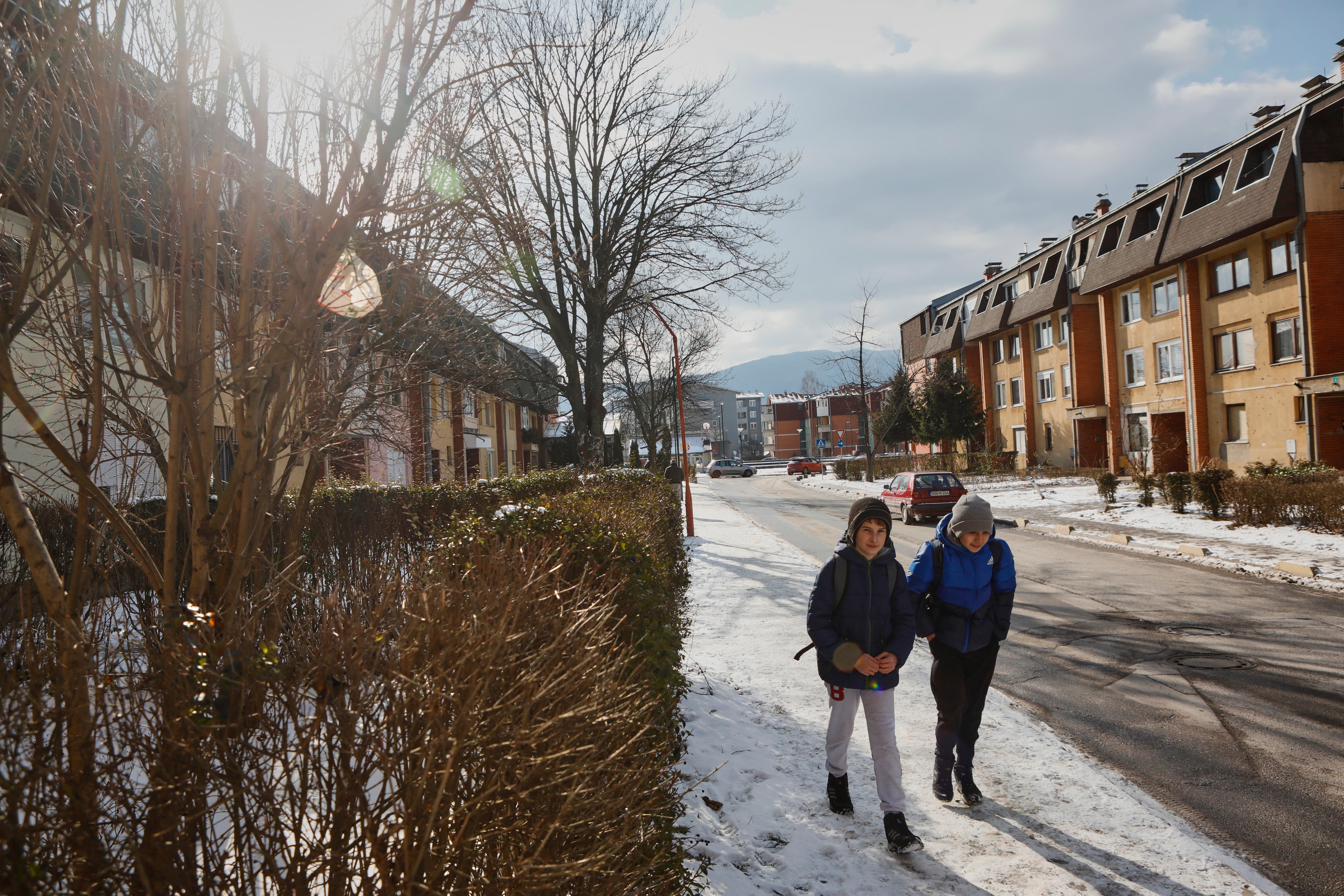
In his youth, growing up in the former Yugoslavia, he dreamt of becoming an artist, a painter. Instead, war came, and he was pressed to join the local Bosnian Serb militia. As a resident of the ethnically mixed Dobrinja district of Sarajevo, his job was to kill his neighbours. The very same people with whom Nebojsa Opacic had gone to school, played football and flirted became his mortal enemies. He held an assault rifle, went on patrols, and bowed to the orders of his commanders as he helped to lay siege to Sarajevo. He was terrified. Daily he risked his life dodging mortars and rockets.
And then one day, the fighting stopped. Opacic, then in his mid-twenties, handed over his guns. Peace negotiators drew an invisible line right through the middle of Dobrinja. And, as quickly as they had begun shooting at each other, he and the Bosniak Muslims of the neighbourhood resumed old friendships, acquaintances and business ties. He regularly drinks beers with former fighters of the opposing side. They crack dark jokes about the mortars and rockets they used to fire at each other.
“The people didn’t want to have a war, but when it broke out everyone went to their side,” he says, now 51, haggard, and sipping hot tea in a cafe along the demarcation line on a brutally cold January afternoon. “When it stopped, the people started to live together again. As long as you weren’t a war criminal, you were alright. We were friends before the war. We were friends after the war.”
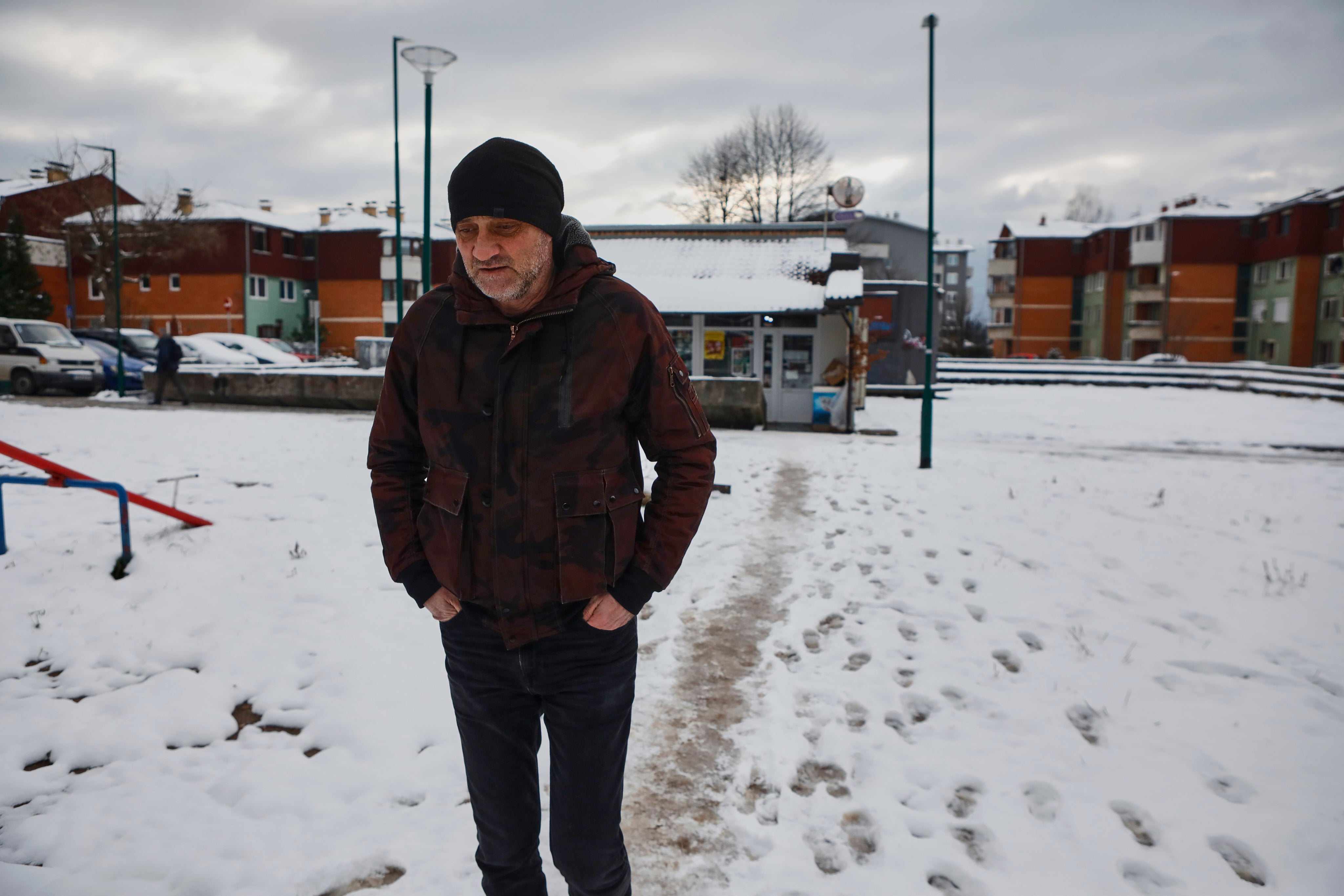
Many of Bosnia-Herzegovina’s politicians and experts say the country could never go back to the kind of intra-communal warfare between Muslim Bosniaks, Catholic Croats and Orthodox Serbs that ripped neighbourhoods suchas this apart. Dobrinja’s experience suggests how easily it could slip back into violence – and in the blink of an eye, return to peace.
Bosnia-Herzegovina is now suffering its worst crisis since the 1990s war and the subsequent Dayton Peace Accord, which ended the conflict and carved up the country into separate enclaves: the internationally recognised federal government and a Serbian Republic, commonly known as the Republika Srpska. Serbs are threatening to derail the already fragile union, and some politicians are calling for unification with the nation of Serbia. Bosnian Croats are making similar murmurs, demanding more autonomy. Corruption and incompetence allegations have weakened the credibility of the Sarajevo political elite.
The peace of the country and the very notion of Bosnia-Herzegovina as a multi-confessional nation is under threat like never before. Many are not surprised; little has been done over the past 30 years to bring about healing or reconciliation. “We had a war which was against the idea of Bosnia,” says Srjdan Puhalo, a Bosnian Serb political analyst and commentator in Banja Luka, capital of the Republika Srpska. “And after the war, this was overtaken by politics. So for the past 25 years, the idea of opposition to Bosnia-Herzegovina was always present. And that means there are more problems, which have remained unresolved, and it’s now a combination of those unsolved problems.”
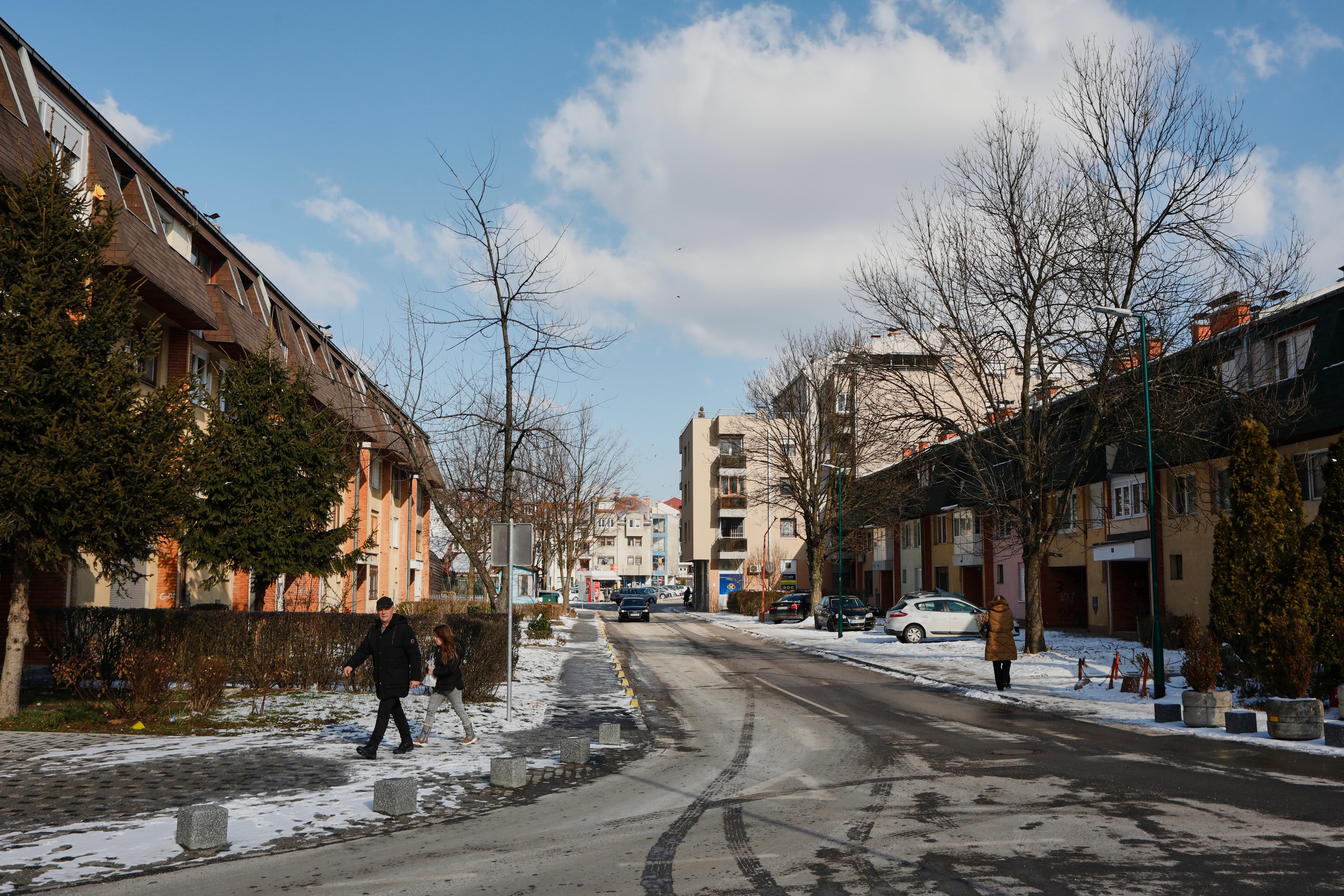
During a visit to the country in January, I sought answers about the legacy of the war, and about chances for a revival of the conflict, as well as prospects for strengthening Bosnia-Herzegovina as a multi-confessional, multi-ethnic state. In Dobrinja, a flashpoint in the war, there is surprising hope for the future. The residents speak of embracing the neighbourhood for its diversity, and feeling connected to their nation.
“Dobrinja was a hellish place during the siege,” says Kenneth Morrison, professor of Balkan history at De Montfort University in Leicester, and a regular visitor to Sarajevo. “It was destroyed, a siege within a siege. But it’s really come back to life.”
Dobrinja was a hellish place during the siege. It was destroyed, a siege within a siege. But it’s really come back to life
Along with Jerusalem and Nicosia in Cyprus, Sarajevo remains one of the world’s few politically divided capitals, with the eastern suburbs of the city under the control of the Serbian entity, and the historic city centre under the jurisdiction of the Federation of Bosnia and Herzegovina.
Dobrinja was originally built to house athletes and visitors for Sarajevo’s 1984 Winter Olympics. Before the war, it had a certain cache. The quality of the three- and-four storey apartment buildings was considered well above average. Green spaces abounded. Back then, under the former Yugoslavia, there was little distinction between Serbs, Croats and Bosniaks, so Bosnians of all communities rushed to get apartments there.
Once the war ended they returned from abroad and from other parts of the country and rebuilt from the ruins. Over the years, the interactions have multiplied dramatically. Many young people live on one side and have jobs on the other. Residents skip back and forth searching for the best deals on sparkling water, detergent or clothes. Some people prefer the beer on one side over that of the other.
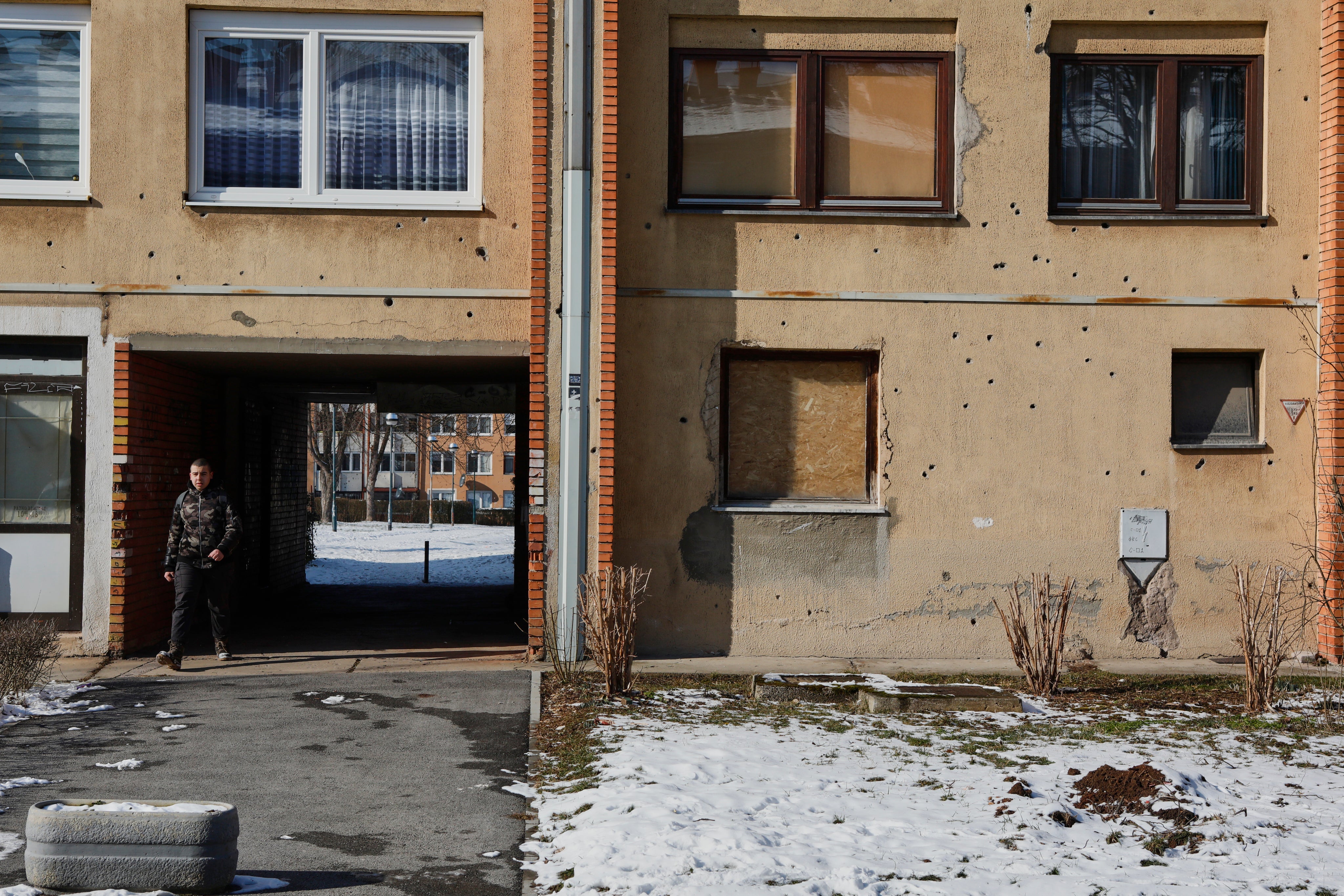
There are also some absurdities. Taxis registered in the federation territory must change their placards when crossing into Republika Srpska, and vice versa. Cops from one side can’t enter the other side, even when they are chasing thieves. Criminals would steal or carjack motor vehicles and head for the frontier, knowing they’d give the police the slip. Finally, law enforcement on both sides agreed to allow the others to enter when in “hot pursuit” of the bad guys.
A grocery store rests right smack bang in the middle of the dividing line, with half of it in the Republika and the other in the Federation. The elderly owner has in the past publicly complained that she’s confused about to whom she should pay for various utilities. “I pay my water to the Republika Srpska and my gas and electricity to the Federation,” jokes Opacic.
Bullet holes mark some buildings, but you have to look for them. Sometimes Bosniak kids make forays into the Serbian side and vandalise portraits of Serbian war criminals such as Ratko Mladic. Sometimes Serbian kids parade through the Bosniak side and sing provocative nationalistic songs. The social wounds percolate just below the surface.
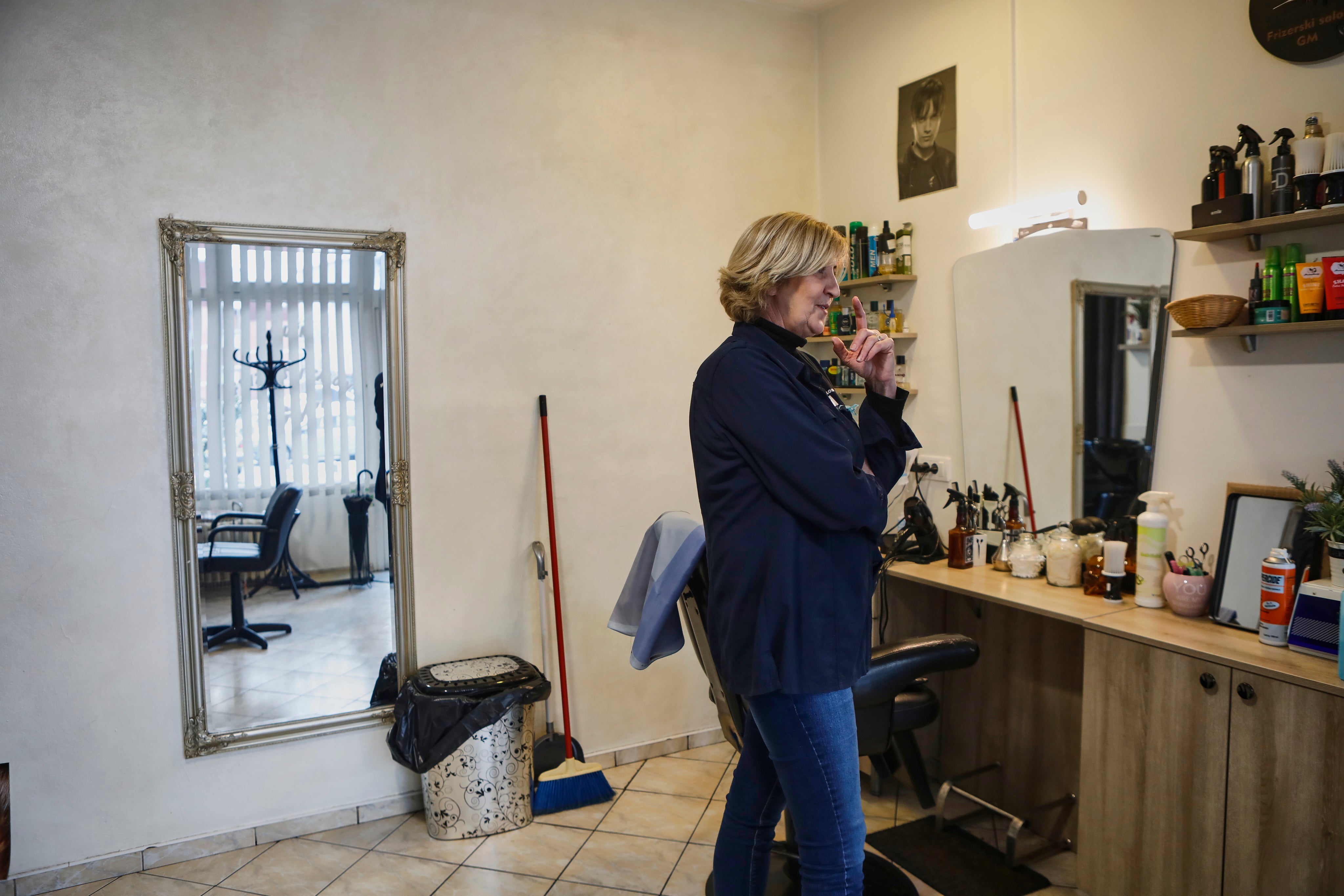
A Serb, Mirjana Goljanin, 53, cuts men’s hair from her salon just on the Bosniak side of the divide. The single mother and her two kids used to live on the Muslim side too, but moved to the Serbian side amid what she described as racist taunts from neighbours. “I was harassed by the neighbourhood kids and my children were bullied,” she says, shaking in rage as she describes what happened some 20 years ago. “During Christian holidays they dumped shit in front of my house, and I couldn’t stand it.”
I ask about her anger and why it has persisted for so long. She laughs. “We Bosnians all have post-traumatic stress disorder,” she says. She and her husband got married and moved to Dobrinja in 1990. On her marriage certificate she defiantly signed her ethnicity as Yugoslavian, and the pair moved to Dobrinja.
“It was a beautiful neighbourhood,” she recalls. “You could get drunk and fall asleep in the park.”
I was disgusted with both sides. I curse all those who started the war. That’s why I have a business in the federation and an apartment in the Republika Srpska
They fled during the war. But tragedy pursued the family. Her husband died suddenly of a heart attack in 1995, just as the Dayton Peace was being signed. He left her alone with a three-year-old daughter and an infant son. But because he was not a fighter, she received little if any support from the Bosnian Serb community when she moved back to Dobrinja.
“I was always in between,” she says. “And I was very disgusted with both sides. I curse all those who started the war. That’s why I have a business in the federation and an apartment in the Republika Srpska.”
She now boasts that she receives customers from all of the country’s ethnic groups. But complications and confusion persist. Her daughter, now 30 years old, met and fell in love with a Bosnian Muslim, and the pair have moved in together. Though she is proud of her daughter, she worries for her, and the taunts their children might endure while growing up in such a fractured nation. “What should I tell my kid?” she wonders, before answering with dismay: “I told her to move to Germany.”
Not everyone is so bleak, especially among the generation that grew up after the war. Milko Milinovic works as a foreign language teacher at a school in Republika Srpska but lives in the Bosniak district of Dobrinja, where he purchased a flat eight years ago. The 36-year-old says he comes from a mixed marriage, a Serbian dad and a Muslim mom.
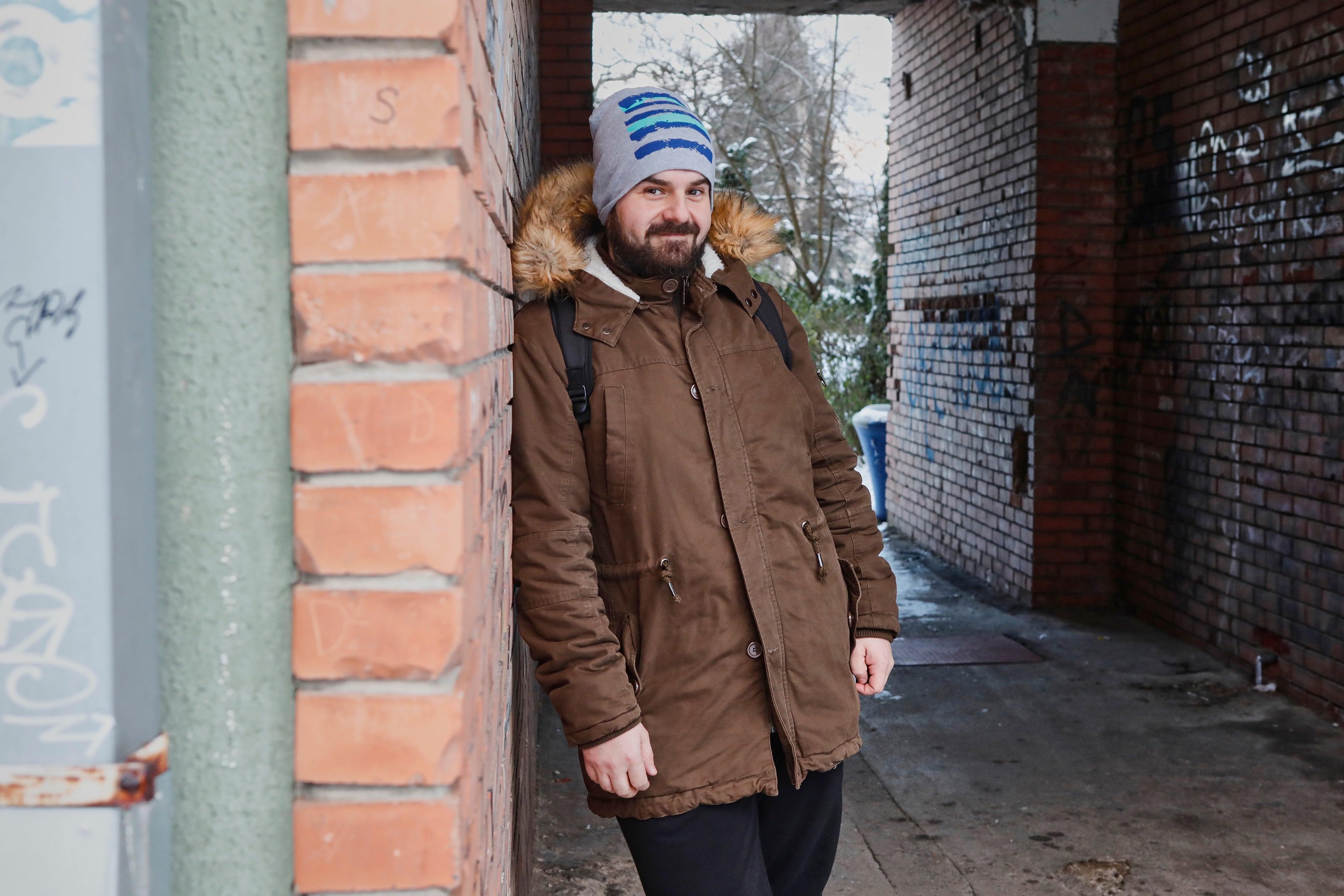
“I think the future is bright for Bosnia-Herzegovina,” he says in fluent English. “I moved here because I like Dobrinja. It has everything. It has good kindergartens, schools, and malls. I wouldn’t trade my apartment for anywhere else.”
Arnal Hansanica, a 41-year-old Bosniak Muslim, works for a Slovenian firm with a branch in Sarajevo. He moved to the neighbourhood three years ago, with his wife and two boys, now eight and 11 years old. During Serbian Orthodox Christmas in early January, his kids went to wish their neighbours well. Though Muslim and Serbian kids go to different schools, they all play together after school.
“It’s very cool to live in this neighbourhood,” he says. “We feel like it’s a little Yugoslavia. We are trying to have good relations with our neighbours because life is short.”
He shrugs when asked if he worries his neighbourhood will be engulfed in fighting should war break out. “Sarajevo is on the front,” he says. “All of Sarajevo.”
It’s very cool to live in this neighbourhood. We feel like it’s a little Yugoslavia. We are trying to have good relations with our neighbours because life is short
Morrison, the scholar, described a new breed of urban professional moving into Dobrinja. They treasure it for its diversity. “It’s attracting a certain type of young person: upwardly mobile, tech-savvy,” he says. “It’s something unique, even by Sarajevo standards.”
But even elsewhere in Bosnia, the complicated and nuanced way that ordinary people live their lives belies the rhetoric of the political class. Residents say that even during the war, Bosniaks and Serbs looked after each other’s homes and properties when their neighbours were forced to flee.
“The border doesn’t affect the life of the people who live here,” says Milo Malvic, 73, a former soldier in the army of Republika Srpska, who moved to Dobrinja 20 years ago. “They go down and up and back and forth.”
He says he and his family frequently venture across the divide to central Sarajevo. He visits shopping malls while his grandchildren frequent Sarajevo’s nightclubs. “There are bullet holes in some of the buildings but we look past them,” he says. “We don’t see them. We covered up the holes, and also we covered them up in our heads.”

I asked one Bosnian Serb politician who lives in the Republika Srpska part of Sarajevo if she, like Malvic, ever had an opportunity to travel just a few miles away to visit the city centre, a lively free-for-all of architectural styles that includes international chain stores, Arabian Peninsula and Turkish-bankrolled shopping centres, global financial institutions and historical treasures dating back centuries. She seemed confused by the question. Yes, she said, she meets and has cordial relations with her Bosniak and Croat counterparts in parliament.
I took out my smartphone and showed her photographs I had taken the evening before inside the ornate and elegant Cafe Vienna, housed in the Hotel Europa, within the narrow streets of Sarajevo’s old city. She conceded that she had never been there, that in all her months working as a member of parliament in Sarajevo and the years she had been a citizen of Bosnia-Herzegovina never felt drawn to explore the capital.
Repeatedly I heard stories of groups of Serbs shocked to see women in skimpy designer outfits during visits to Sarajevo or Bosniaks surprised to learn that Muslims in Banja Luka are worshipping at rebuilt mosques. People just don’t know each other. Over dinner one night in Sarajevo’s charming old city, theatre producer and cultural maven Nihad Kresevlakovic speaks to me about the history of Bosnia-Herzegovina. He describes Bosnia-Herzegovina as an ideal, as a place that values diversity as opposed to seeing it as a drawback, as viewed by nationalistic populists throughout eastern Europe and the Balkans.
People would help me because I am a Bosniak. I have no doubt that everyone was trying to present themselves to each other as not as bad as you think
He suggests that a longing for diversity, for being seen and appreciated by other communities, is built into the fabric of his society – maybe even all societies. That makes it all the more important for the experiment in Bosnia-Herzegovina to succeed. He describes driving around the country to assess the damage immediately after the war. Back then he recalls feeling no fear in Republika Srpska, and says that Serbs felt similarly assured travelling through the Muslim parts of the country.
“People would help me because I am a Bosniak,” he says. “I have no doubt that everyone was trying to present themselves to each other as not as bad as you think.”
In the intervening years, it has been politicians like Bosnian Serb leader Milorad Dodik who have led the people astray and fanned the flames of nationalism. “Sarajevo is still the best example of cooperation in the region,” he says. “The idea of Bosnia still exists among many people here. Maybe we’re not such a big number of people. But we’re not such a small minority either.”
Jasmin Brutus contributed to this report
Join our commenting forum
Join thought-provoking conversations, follow other Independent readers and see their replies
Comments
Bookmark popover
Removed from bookmarks